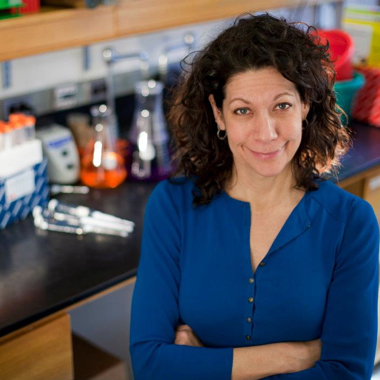
VVP Bonnie Bassler wins 2022 Wolf Prize
Congratulations to VVP Bonnie Bassler (Princeton University), who has won the 2022 Wolf Prize in Chemistry jointly with Carolyn R Bertozzi of Stanford University, and Benjamin F Cravatt III of Scripps Research in California. They are among 11 people honored this year in the fields of physics, chemistry, mathematics, medicine, agriculture, and the arts. Bassler, Bertozzi and Cravatt were given the award “for their seminal contributions to understanding the chemistry of cellular communication and inventing chemical methodologies to study the role of carbohydrates, lipids, and proteins in such biological processes,” according to the Wolf Foundation. “Bonnie Bassler is awarded the Wolf Prize for her work elucidating the role of chemical communication between bacteria. She has made important discoveries revealing how quorum sensing is used by bacteria both for virulence and for communicating across species.”
Just two decades ago, bacteria were besmirched as primitive entities. But research since then has proven otherwise. As an undergraduate in biochemistry, Bassler was disappointed when she was assigned to a project studying bacterial enzymes. She initially thought that bacteria were the simplest organisms but soon found out they are highly sophisticated. After completing her Ph.D. at Johns Hopkins University, she joined the Agouron Institute in La Jolla, focusing her research on what is now called quorum sensing, the process by which bacterial cells communicate chemically.
Quorum sensing involves the production, release, and subsequent detection of chemical signal molecules called autoinducers. This process enables populations of bacteria to regulate gene expression, and therefore behavior, on a community-wide scale. It is wide-spread in the bacterial world, so understanding this process is fundamental to clinical and industrial microbiology and to understanding the development of higher organisms.
Bassler showed that bacteria are multilingual. Her studies are providing insight into intra- and inter-species communication, population-level cooperation, and the design principles underlying signal transduction and information processing at the cellular level. These investigations are also leading to synthetic strategies for controlling quorum sensing.
Therapeutics that interfere with quorum sensing may provide ways of combating drug-resistant infections. This approach manipulates the quorum-sensing conversation to either shut bacteria down when they’re doing things we don’t like or beef up their conversation when they’re doing something we do like. In other words, we make “bad” bacteria incapable of communication while enhancing the conversation between “good” bacteria. Her work has wide-ranging implications for developing novel antimicrobial therapeutics and the next generation of antibiotics.
Previous Wolf Prize winners among the Vallee Foundation community include Emmanuelle Charpentier in 2020, Lewis Cantley in 2016, and Gary Ruvkun in 2014.